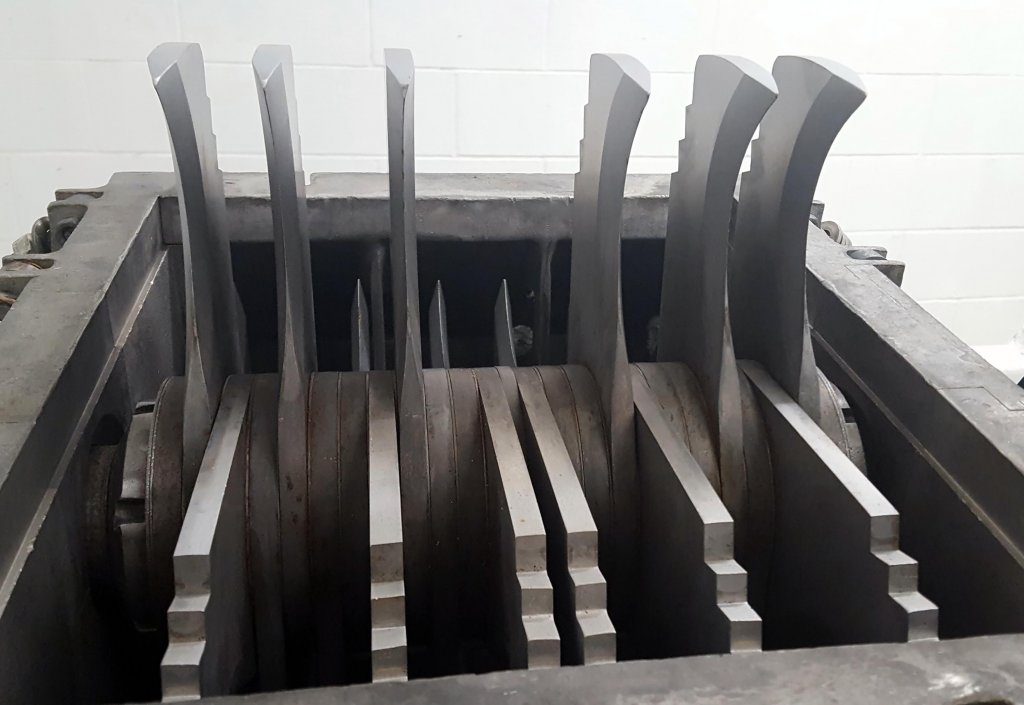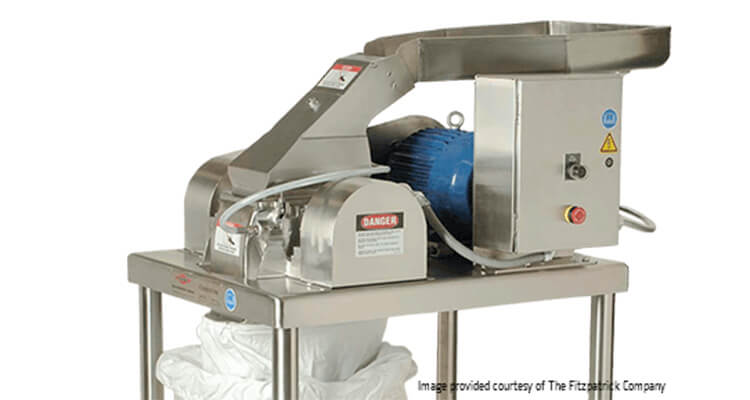Typically, when you think of a hammer being used in the food industry, you’re most likely imagining a meat tenderizer or similar kitchen gadget. But what many people don’t realize, is that for many of the ingredients in today’s packaged food items, a lesser-known type of hammer is commonly used: a hammer mill.
What is hammer milling?
Hammer milling is a manufacturing process designed to break down materials into a smaller, more manageable size. These mills use rapidly rotating “hammers” to repeatedly collide with the materials until they are small enough to pass through a size-dependent screen for collection.
Hammer mills can use either “blunt” or “sharp” hammers:
- Blunt Hammers impact the material with a flat surface, leading to greater particle size reduction but a wider size distribution.
- Sharp hammers use knife-like edges to slice apart the material, which achieves less particle size reduction, but a narrower size distribution.
Determining the optimal solution for a dehydrated vegetable product
A customer came to us with a food-grade material consisting mainly of dehydrated vegetables that needed to be reduced in size. They also required the product to be both Kosher and Halal certified, and were looking for a manufacturer who could follow the strict GMP guidelines—of which AVEKA is most certainly qualified.
Before we could suggest the ideal milling solution, we first needed to know more about the product. We ran some characterization tests and determined the following:
- Size: The mean incoming material size was ¼ inch. This starting size was well within the feed range of our grinding equipment.
- Moisture content: Though it was dehydrated, the vegetables still contained an average moisture content of 4%. This meant it would be brittle enough for effective hammer milling.
- Oil levels: We determined that the material’s oil levels were low, which is good because products with high oil levels will not break apart as easily.
With this information, it was obvious that a hammer mill was our best bet to reduce our customer’s material down to their target size of 200 microns.

A look inside an AVEKA Hammer Mill
The hammer milling process
The dehydrated vegetable material came to us in 50 lb. Kraft bags, which we removed and then fed the starting material into our 12-inch hammer mill. We began with the sharp hammers and they immediately proved to be successful at getting the throughput we desired.
We then selected the proper mesh screen that would filter out a 200-micron product. Since this particular material was deemed of higher value to the Customer, any oversized particles were reintroduced back into the process for further milling.
From there, the finished product was pneumatically conveyed through a cyclone and collected for final packaging.
Testing, quality assurance, and packaging
AVEKA provided Kosher and Halal certified processing. The fact that we were willing to offer this option was a big reason why the customer ultimately chose to partner with us.
Additionally, we provided many in-house tests and quality assurance checks within process samples pulled throughout the campaign. We used a Horiba laser light scanning instrument to determine that we reached the desired size distribution. Finally, we ran the material under a magnet trap to give the customer added assurance on the quality of the final product.
Once the product passed all quality control checks, it was packaged in 25 kg. bags and loaded onto heat-treated pallets. From there, it was shipped off to the satisfied customer.
What can AVEKA hammer out for you?
AVEKA is a full-service toll processing and R&D company that specializes in material reduction processes such as hammer milling. With over 30-unit operations, we can handle any job, from lab-scale to multi-step production and anything in between. Contact our specialists today to discuss your unique product needs.

